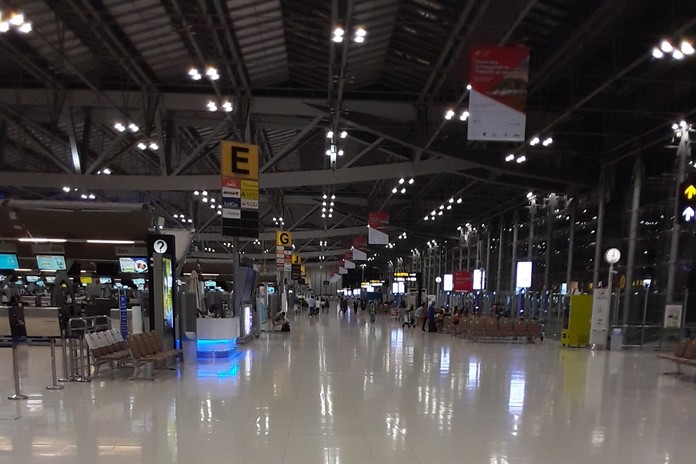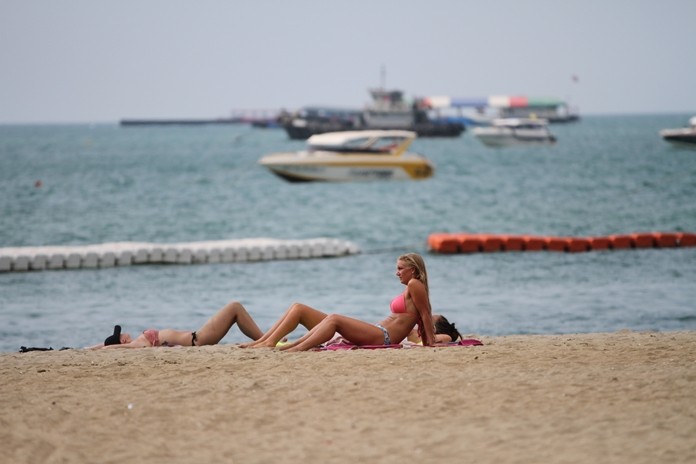
It may be several days before all the tell-tale detail will be available concerning the latest government idea to reopen Thailand to selected tourists for holidays of up to 270 days. Until now, Thai airports have been closed to all foreigners except those in a special category such as work permit holders, seriously-ill medical tourists and aliens with Thai wives and families to support. Thai land borders will remain closed to human traffic for the foreseeable future.
Please Support Pattaya Mail
But now the Thai Cabinet has agreed in principle a scheme, likely to begin late next month, to allow long-stay general tourists to enjoy national travel, Thai hospitality and sunkissed beaches for up to nine months in one visit. The precise detail is being left to the Centre for Covid-19 Situation Administration (CCSA) which has several doctors and medical advisers who are very cautious in matters concerning any loosening of the coronavirus restrictions.

So far, we know that the new tourist visa will be for an initial three months, issued by the Thai embassy in the country of departure, and be extendable at Thai immigration offices for a further 90 days, and then another if needed (90+90+90). Thai embassies are not yet ready to issue the initial visas as they are awaiting instructions about the required paperwork. The visa and each extension of stay will cost 2,000 baht. There is no requirement to stay the entire 270 days, but “at least” three months.
But we do know that applicants must be ready to pay in advance of departure for a 14-days compulsory quarantine in a Thai hotel (known as an Alternative State Quarantine or ASQ) and provide proof they have paid in advance for accommodation for the first month, or can provide unambiguous evidence they own a condo, have a lease on a property or live with close relatives. Other requirements include a Covid-19 free certificate, issued shortly before departure, and sufficient travel and medical insurance. It is not yet known whether the required medical cover will be as expensive as the minimum US$100,000 policy required for already-approved categories of travellers. If so, that will rule out most advanced-elderly tourists who are shunned by insurance companies.
Although some local media in Thailand and overseas have already greeted the Special Tourist Visa (STV) as the savior of the tourist industry, this is a case of jumping the gun. Government spokespersons have already indicated that they expect only about 300 tourists a week under the scheme with expected income of about one billion baht on a monthly basis. This suggests that participants will be expected to fly in by special charter flights from cities which have been virus-free for at least two months. Whether individual travellers will be allowed by finding a seat on evacuation flights returning Thais to their home country is not yet clear. Currently, there is a ban on scheduled open flights coming into the country.
Geoffrey Fletcher, a London-based spokesman for the Association of British Travel Agents, said, “This is a very cautious approach and the Thai authorities look to be concentrating on short-haul visitors from Asia via charter flights,” stressing that compulsory quarantine ruled out most general tourists, whilst comprehensive medical insurance would likely prove expensive. He pointed out that if the tourists arrived by charter flight, problems would arise when they wanted to go home at different times.
Social media in Thailand is already debating some of the ambiguities. Thus clarification is awaited on whether foreigners currently enjoying visa amnesty status until September 26 will be able to transfer to the new visa. Immigration sources told Pattaya Mail this was unlikely as the STV had to be applied for abroad and approved by the appropriate Thai embassy. Nor is it clear whether the STV could be used to transfer holders to other long-term extensions of stay such as retirement, marriage or becoming a student. In other words, a lot of water has yet to pass under this particular bridge.
 |
 |
 |





